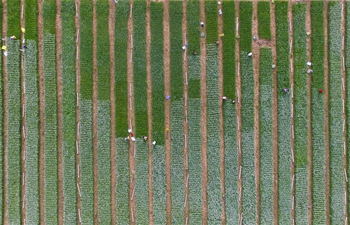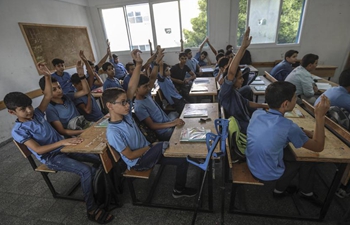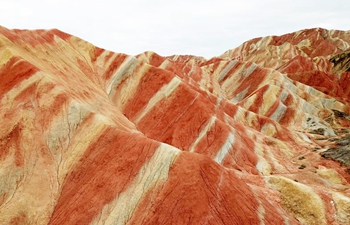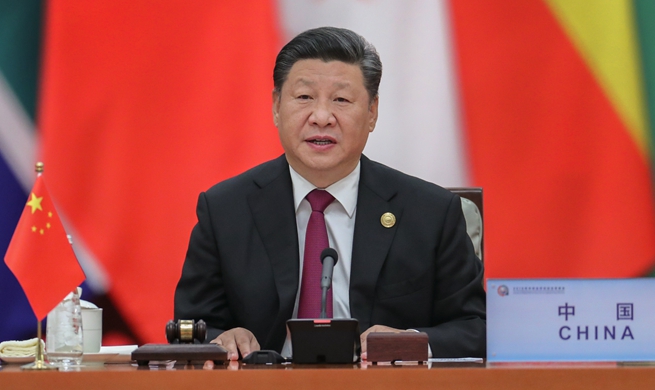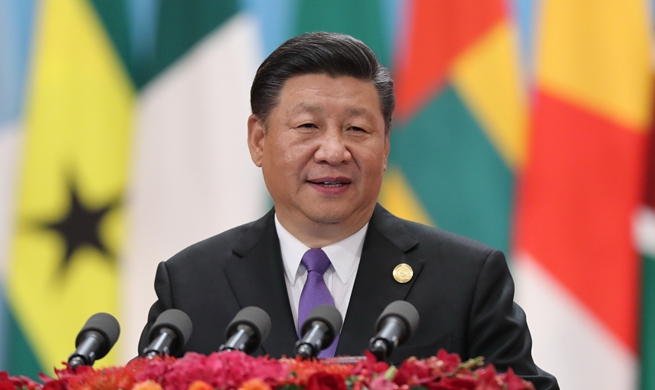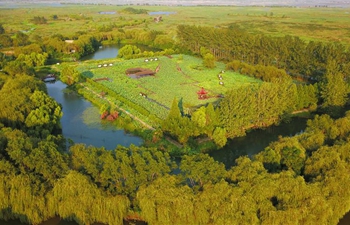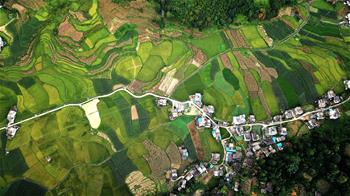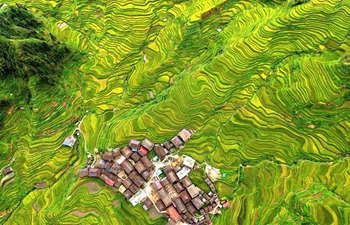GENEVA, Sept. 6 (Xinhua) -- As glacier meltwater takes only a small percentage of the Swiss hydropower production, the predicted slowdown of global warming towards to the end of this century due to pro-environment measures, which in turn leads to slower glacier melt, will poses no threat to Swiss hydropower capacity, the Swiss National Science Foundation (SNSF) announced on Thursday.
For decades, glacier melt due to climate change has provided additional water for Swiss dams, but this windfall for hydroelectric generation is unlikely to continue if society manages to slow global warming.
In a SNSF-funded study recently published in the journal Renewable Energy, researchers quantified for the first time the contribution from glacier retreat to the water flow into Swiss hydropower plants, and showed that fears of a threat to power generation are unfounded.
Data suggests that since 1980, glacier meltwater has contributed an average of 1.4 TWh (terawatt hours) per year, or 4 percent of the country's total hydropower output. This additional electricity generation is linked to the fact that melting glaciers lose more water than they take in from precipitation.
The evolution of glacier retreat during the 21st century, based on projections of the Intergovernmental Panel on Climate Change, remains uncertain, but is expected to slow considerably between now and 2070 to 2090, provided measures are taken to counter global warming.
This situation would reduce the production of electricity linked to glacier melt to roughly 0.4 TWh per year, says the study. The predicted decrease, around one TWh, corresponds to 2.5 percent of the electricity from hydropower sources foreseen by the Swiss government's Energy Strategy 2050.
The researchers have established a detailed map of all the catchment areas, which are the areas that supply watercourses, in Switzerland, showing that the water falling on 93 percent of the land area of Switzerland ultimately passes through at least one Swiss electric power plant, some even passing through 30 plants before leaving Switzerland via the Rhine at Basel.
The slowdown in glacier melt will add to other projected losses in productivity, but should be offset by the expansion of hydroelectric capacity envisaged by the Swiss Energy Strategy 2050, the study concluded, adding that the model can help anticipate the future, in particular through regional forecasts.



